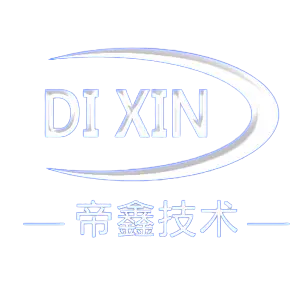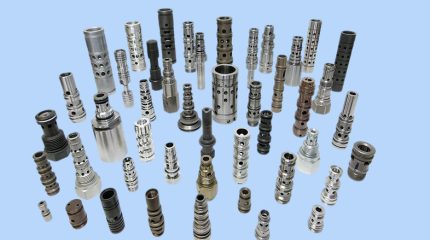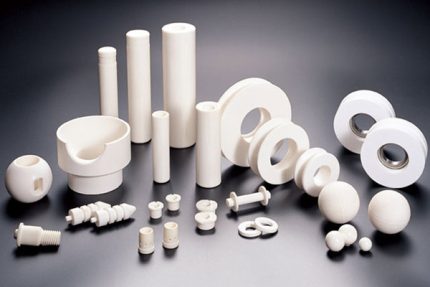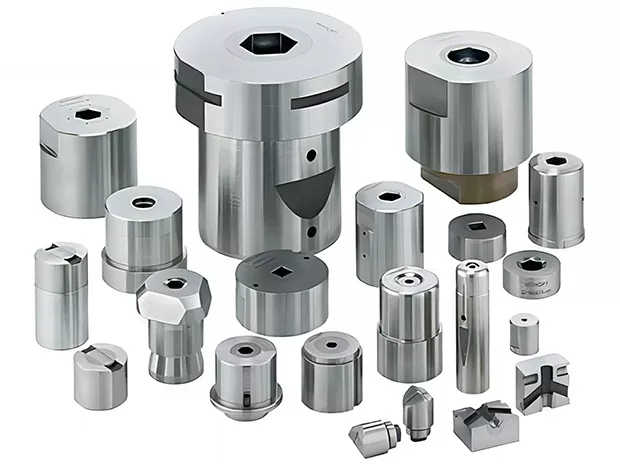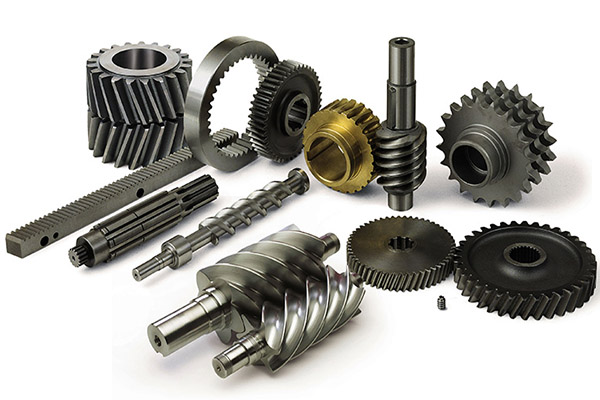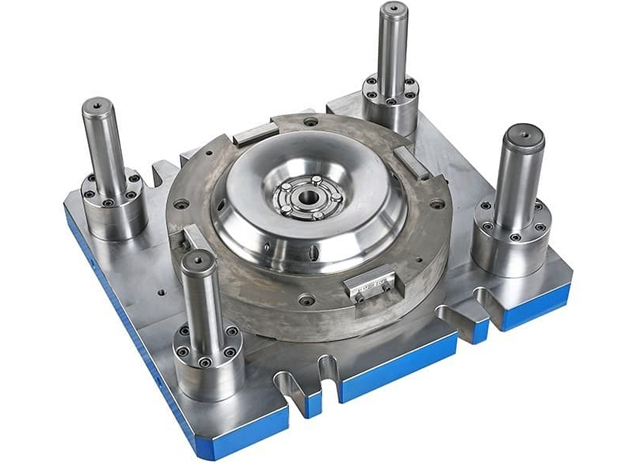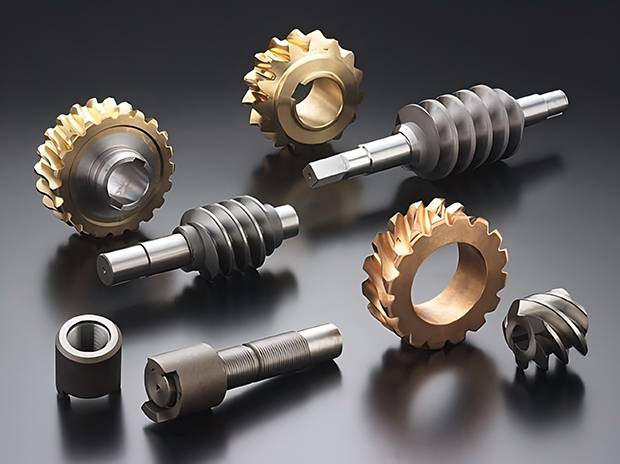Contact Us
FREQUENTLY ASKED QUESTIONS
Dear Customer,
Thank you for contacting China Di Xin Technology regarding your customized production project! 🌟
In order to provide you with the most accurate quote within 24 hours, please provide the following details:
1、 Technical Documents:
2D Drawings (PDF/DWG/DXF)
3D Models (STEP/IGES/SOLIDWORKS)
(This ensures that we are fully aware of your specifications)
2、Ordering Quantity:
Estimated Units Required (for material and process optimization)
3、 Contact Info: Preferred email address
WhatsApp/Telegram (optional for faster communication)
Why work with us?
✅ Over 20 years of experience in precision machining and OEM solutions
✅ ISO 9001 certified facility with over 100 CNC machines
✅ Tooling Design & Engineering - Die Casting, Stamping, and Injection Molds
✅ Includes free DFM (Design for Manufacturing) analysis
Need design help?
Our engineering team is ready to help! Simply reply "I need design support"
Our goal is to send a formal quote within 24 business days of receiving complete information.
We look forward to bringing your concept to life!
Customized Solutions Manager
CONTACT US
Phone: +0086 159 1377 9214
WhatsAPP: +8615913779214
Email: deghtsgu9594@gmail.com
Address: No.2, Heng 1st Road, Jiatian Dongguan City, Guangdong, China
Do you have questions about how we can help your company?
Send us an email and we’ll get in touch shortly.
The Critical Role of Valve Spools and Sleeves in High-Pressure Common Rail Systems
In modern diesel engines, high-pressure common rail (HPCR) fuel injection systems play a pivotal role in achieving precise fuel delivery, enhanced combustion efficiency, and reduced emissions. At the heart of this system, valve spools and sleeves act as precision control elements within the injector, directly influencing injection timing, fuel quantity, and system responsiveness.

1. Functional Significance and Working Principle
The valve spool and sleeve form a high-precision assembly that governs the movement of fuel from the high-pressure rail to the injector nozzle. Driven by an electromagnetic or piezoelectric actuator, the spool moves rapidly inside the sleeve to open or close the fuel passage. This process controls the start, duration, and quantity of fuel injection with micron-level accuracy.
These components must handle fuel pressures exceeding 200 MPa, operate at high frequencies, and maintain consistent performance across millions of cycles. The required fit clearance is typically 1 to 3 μm, necessitating ultra-precise dimensional control and surface finishing.
2. Materials Used and Performance Requirements
To withstand high pressure, friction, fatigue, and chemical exposure, valve spools and sleeves are manufactured from high-strength, wear-resistant materials. The selection of materials is critical for ensuring longevity and stable operation.
Common materials include:
-
Valve Spool:
-
High-Speed Steel (M2, or Powder Metallurgy HSS ASP23)
-
Tungsten Carbide (Grades such as YG6X, YG8)
-
Technical Ceramics (e.g., Zirconia) in ultra-high-performance applications
-
-
Valve Sleeve:
-
Hardened Stainless Steel (20Cr13, HRC ≥ 58 after heat treatment)
-
Precipitation-hardened steel (17-4PH)
-
Carburized alloy steel such as 16MnCr5, with surface hardness up to HRC 62
-
Each material is selected for a specific balance of hardness, fatigue strength, corrosion resistance, and dimensional stability.
3. Manufacturing Process Overview
The production of valve spools and sleeves involves a series of ultra-precision processes. Each stage is optimized for maintaining tolerance, surface quality, and geometric consistency.
Typical manufacturing flow:
-
Material Preparation
Forging → Rough Machining → Solution Treatment / Pre-Hardening -
Precision Machining
-
Turning (using Mazak or Citizen high-precision lathes)
-
CNC Milling (on Mikron or Makino 5-axis machining centers)
-
ID/OD Grinding (using STUDER or JUNG CNC grinders)
-
-
Heat Treatment
-
Vacuum hardening
-
Carburizing and quenching
-
HIP (Hot Isostatic Pressing) for carbide components
-
-
Superfinishing and Fit Tuning
-
Centerless grinding and internal bore honing
-
Precision lapping for mirror surface finish (Ra ≤ 0.02 μm)
-
Roller burnishing and ultrasonic cleaning
-
-
Final Inspection and Assembly Pairing
-
Roundness and concentricity inspection with Tokyo Seimitsu roundness testers
-
CMM dimensional verification using Zeiss CONTURA/PRISMO
-
Leak test and air-tight pairing to ensure precision fit and functional sealing
-
4. Technical Challenges and Solutions
Micron-level fit and extreme operating conditions present multiple technical challenges. Some of the key hurdles include:
-
Ultra-Tight Clearance Control (1–3 μm)
Requires high-end grinding machines, in-process measurement, and thermal deformation management. -
Perfect Cone Matching Between Spool and Sleeve
Taper angle tolerance is limited to ±2 arc-seconds, achieved via CNC profile grinding with laser interferometer calibration. -
Surface Hardness and Wear Resistance Enhancement
Applied treatments such as DLC coating, ion nitriding, or ceramic spraying are used to increase wear resistance and reduce friction. -
Dynamic Response and Fatigue Life Requirements
Balanced mass and precise symmetry are ensured through multi-axis balancing and high-frequency simulation testing, allowing the components to operate over 50 million cycles without jamming or fatigue failure.
5. Key Equipment Used in Manufacturing
To meet the extreme accuracy demands, only high-end equipment and inspection systems are used:
-
MAZAK Ultra-Precision Turning Center
-
STUDER S33/S41 CNC Cylindrical Grinder
-
MIKRON UCP600 5-Axis CNC Machining Center
-
Zeiss CMM (CONTURA / PRISMO series)
-
Tokyo Seimitsu Roundness Tester (Rondcom)
-
Ultrasonic Cleaning & Cleanroom Assembly Systems
Each machine is selected for its repeatability, micron-level resolution, and ability to maintain thermal and geometric stability during extended cycles.
Conclusion
Valve spools and sleeves are critical components that determine the performance and reliability of high-pressure common rail fuel injection systems. Their extreme precision, surface quality, and material durability are essential to meeting modern requirements for emissions, fuel efficiency, and engine responsiveness.
At our facility, we specialize in the custom CNC machining of ultra-precision valve components. Customers can submit technical drawings or specifications, and our engineering team will conduct a thorough feasibility evaluation, including material selection, tolerance review, and process planning. Based on the analysis, we will provide a detailed quotation tailored to your exact requirements.
With advanced manufacturing capabilities, strict quality control, and years of experience in high-precision applications, we are committed to delivering components that meet or exceed international standards. Contact us today to start your custom production consultation.


Global Direct Delivery No Worries
We provide efficient logistics services covering 150+ countries, with order processing taking only 1-3 working days . The whole logistics tracking system is updated in real time, and standard delivery arrives in 5-15 days (slightly extended in remote areas). Tariff prepaid/payment options are clearly labeled, and parcel safety is insured by all-risk insurance, so that no matter where you are, you can receive your goods in a worry-free and transparent way!
Cross-border delivery
International special line + local logistics strong combination of mainstream countries 7-12 days speedy arrival. Orders automatically generated tracking code, cell phone at any time to check the pieces. In case of customs clearance or delivery anomaly, 24/7 multilingual customer service instant response. Support DDP / DDU mode, transparent and controllable transportation costs, your satisfaction is our measure of the world!

